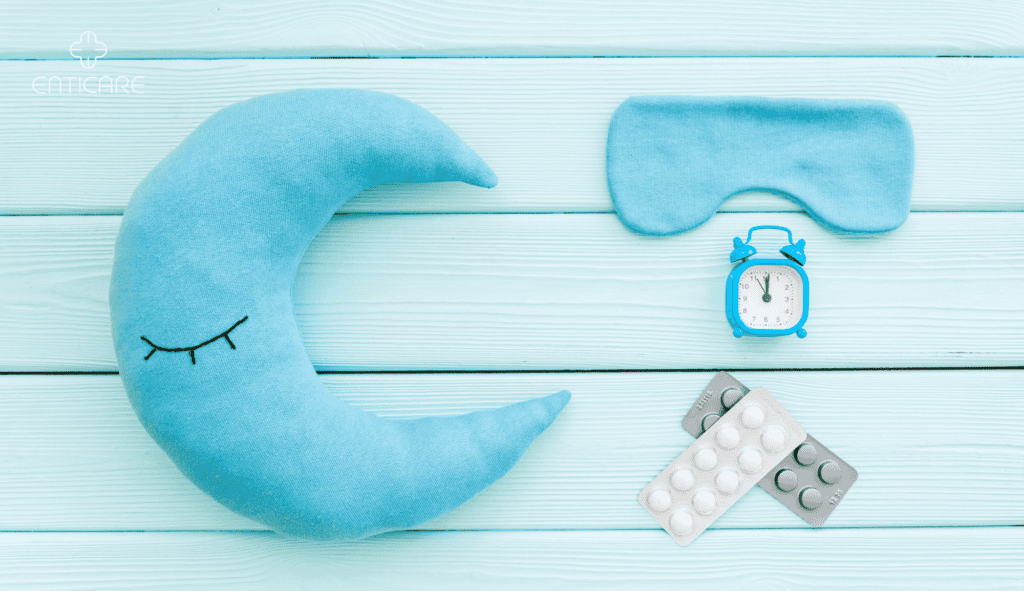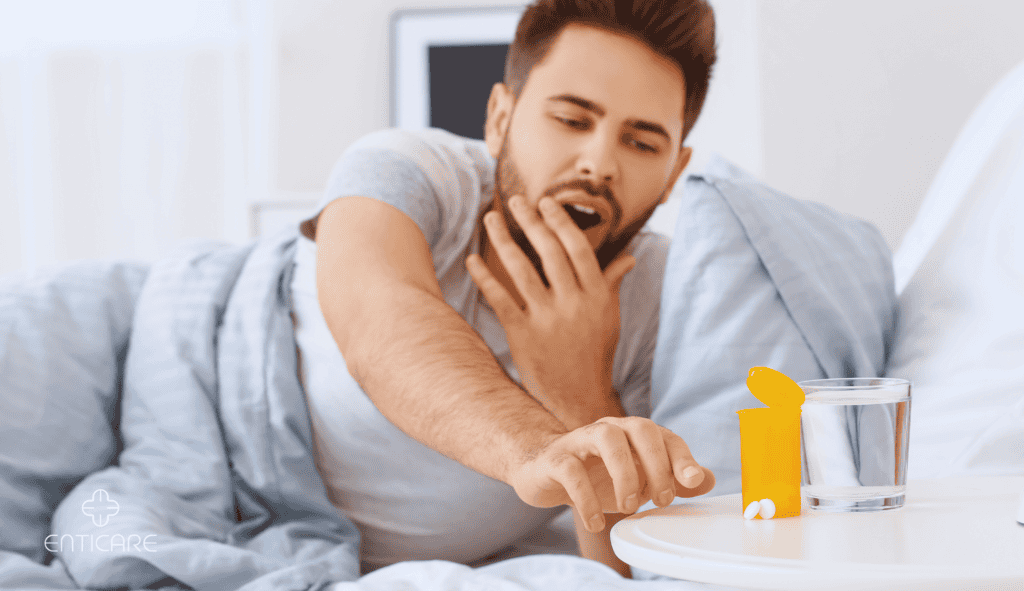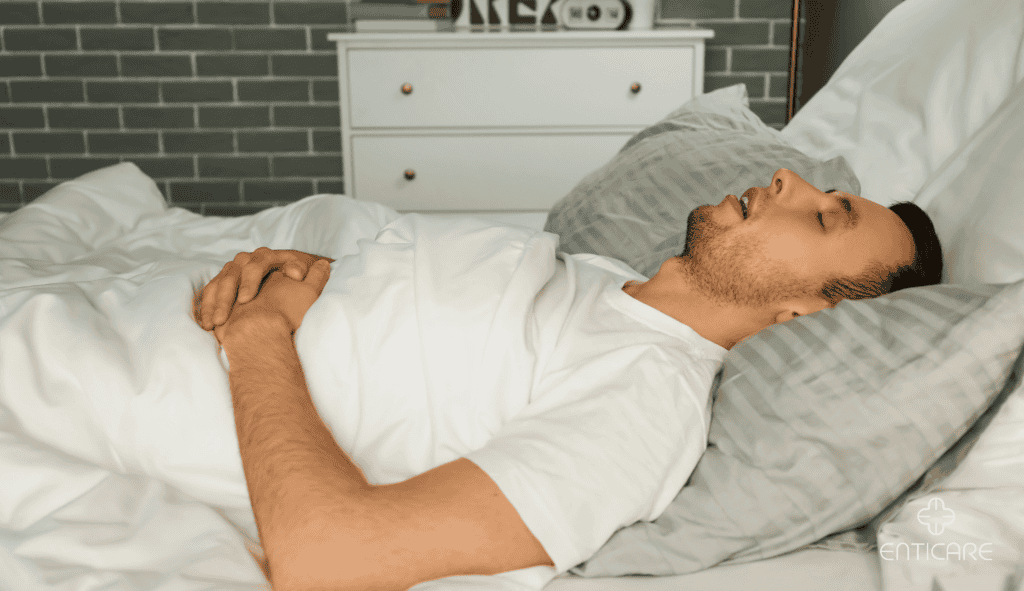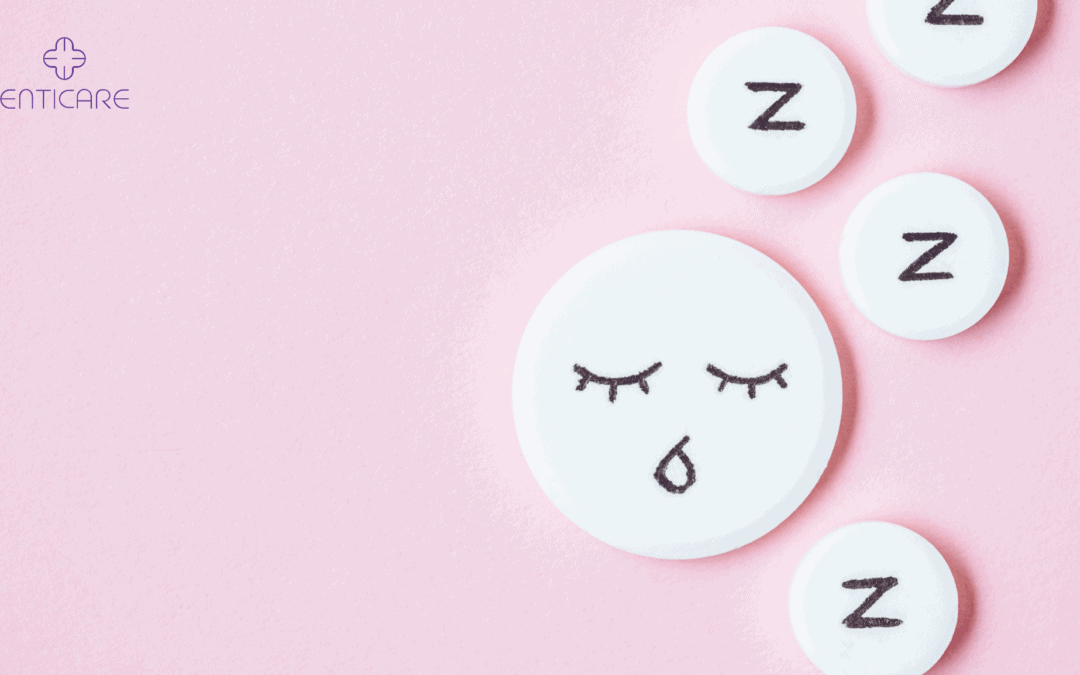Sleep disorders, including sleep apnea, affect millions of people worldwide. Sleep apnea causes repeated interruptions in breathing throughout the night, leading to poor sleep quality and a range of health issues, including heart disease, high blood pressure, and diabetes. While there are several treatment options available, many individuals with sleep apnea turn to over-the-counter or prescription sleep aids in an attempt to get a good night’s rest. However, this approach comes with significant risks.
In this blog, we will explore the dangers of using sleep aids for sleep apnea treatment and why they are not a suitable solution for managing this condition. We will also cover safer and more effective treatments that address the root cause of sleep apnea rather than masking the symptoms.

Understanding Sleep Aids and Sleep Medication: What Are They and How Do They Work?
Before diving into the dangers of using sleep aids for sleep apnea, it’s important to understand what sleep aids are and how they work. Sleep aids, including medications like benzodiazepines and substances like alcohol, can affect sleep patterns and may inadvertently worsen sleep apnea, leading to ongoing sleep disturbances.
Types of Sleep Aids
Sleep aids come in many forms, including over-the-counter medications, prescription drugs, and natural supplements. Common over-the-counter options include antihistamines (like diphenhydramine), while prescription medications may include benzodiazepines, non-benzodiazepine hypnotics (such as Ambien), and melatonin receptor agonists. Natural supplements like melatonin or valerian root are also widely used. However, it is important to consider the potential drawbacks and complications of using sleep medication, especially for individuals with sleep apnea, as these can include dependence, diminishing effectiveness over time, and the risk of exacerbating other sleep disorders.
How Sleep Aids Work
Most sleep aids work by depressing the central nervous system, which induces drowsiness and helps you fall asleep faster. Some, like melatonin, work by mimicking the body’s natural sleep hormones to regulate the sleep-wake cycle. While these medications or supplements may improve sleep for those with occasional insomnia, they do not address the underlying causes of sleep apnea. Certain medications, like benzodiazepines, can lead to central sleep apnea by affecting the brain’s ability to send breathing signals during sleep.
Short-Term vs. Long-Term Use
Sleep aids are generally designed for short-term use to manage temporary insomnia or disruptions in sleep. Long-term reliance on sleep aids can lead to dependency, tolerance, and a host of other health issues, especially in individuals with sleep apnea. Prolonged use of sleep aids can make sleep apnea worse by exacerbating symptoms and leading to more severe health issues.
The Risks of Using Sleep Aids for Sleep Apnea
Using sleep aids to treat sleep apnea is not only ineffective but also dangerous. These medications may mask the problem while exacerbating the condition. Long-term use of sleep aids can contribute to complete obstructive sleep apnea, leading to more severe interruptions in breathing during sleep.
Masking Symptoms Without Treating the Root Cause
Sleep aids may help you fall asleep faster or stay asleep longer, but they do nothing to address the breathing interruptions caused by obstructive sleep apnea. In fact, they can make it harder for you to wake up when your breathing stops, increasing the likelihood of more severe oxygen deprivation.
Increased Risk of Sleep Apnea Complications
Sleep aids can suppress the body’s natural arousal mechanisms, which are vital for someone with sleep apnea. Normally, when the brain detects low oxygen levels, it prompts the body to wake up briefly to restore normal breathing. Sleep aids dull this response, which may prolong periods of oxygen deprivation, leading to more serious complications like heart arrhythmias or strokes. Individuals with chronic obstructive pulmonary disease (COPD) face increased risks of complications related to sleep apnea when using sleep aids.
Risk of Dependency and Withdrawal
Long-term use of sleep aids can lead to physical and psychological dependency. This means that over time, you may require higher doses to achieve the same effect, increasing the risk of side effects. Additionally, discontinuing sleep aids after prolonged use can lead to withdrawal symptoms, including rebound insomnia, which worsens the original sleep problem.

Side Effects of Sleep Aids for Sleep Apnea Patients
Sleep aids, especially when used by those with sleep apnea, come with a range of side effects that can further impair health and well-being. The use of sleeping pills, whether prescription or over-the-counter, can help restore sleep quality but may also exacerbate conditions like sleep apnea.
Daytime Drowsiness and Impaired Function
One of the most common side effects of sleep aids is daytime drowsiness or a “hangover” effect. This can make it difficult to focus, think clearly, and perform daily activities safely. For individuals with sleep apnea, this can exacerbate the already present daytime fatigue caused by poor sleep quality. Additionally, certain medications, such as muscle relaxants and opioids, can contribute to upper airway collapse during sleep, increasing the risk of sleep apnea episodes.
Cognitive Impairment and Memory Issues
Sleep aids, particularly those in the benzodiazepine class, can impair cognitive function, leading to problems with memory, decision-making, and concentration. This cognitive fog can negatively affect both personal and professional life, creating further challenges for individuals who are already dealing with the cognitive effects of untreated sleep apnea.
Increased Risk of Falls and Accidents
Older adults and individuals with other health conditions face an increased risk of falls and accidents when using sleep aids. This is particularly dangerous for those with sleep apnea, as reduced cognitive function and slower reaction times can lead to serious injuries or even death in some cases.
Better Alternatives for Treating Sleep Apnea
While sleep aids may offer temporary relief from insomnia, they are not a solution for sleep apnea. Several safer and more effective treatment options address the root cause of sleep apnea and improve sleep quality. It is crucial to address the underlying issues of sleep apnea before resorting to using any type of sleep aid.
Continuous Positive Airway Pressure (CPAP) Therapy
CPAP therapy is considered the gold standard for treating sleep apnea. A CPAP machine delivers a continuous stream of air through a mask worn over the nose and mouth, preventing the airway from collapsing during sleep. This allows for uninterrupted breathing and significantly reduces sleep apnea episodes, improving both sleep quality and overall health.
Lifestyle Changes
For some individuals, lifestyle changes can help manage sleep apnea symptoms. Weight loss, regular exercise, and avoiding alcohol or sedatives before bed can reduce the severity of sleep apnea. Sleeping on your side rather than your back can also help keep the airway open.
Oral Appliances and Surgery
Oral appliances prescribed by a sleep specialist or dentist can help reposition the jaw and tongue to keep the airway open during sleep. In more severe cases, surgical options, such as removing excess tissue from the airway, may be recommended.
When to Seek Professional Help for Sleep Apnea
If you suspect that you or a loved one has sleep apnea, it’s crucial to seek professional medical help. Untreated sleep apnea can lead to serious long-term health consequences.
Signs You May Have Sleep Apnea Symptoms
Loud snoring, gasping for air during sleep, waking up with a dry mouth, morning headaches, and excessive daytime sleepiness are all signs of sleep apnea. If you experience any of these symptoms, consult a healthcare provider for a proper diagnosis.
The Importance of Early Intervention
Early diagnosis and treatment of sleep apnea can significantly improve your quality of life and reduce the risk of serious health issues, such as heart disease, stroke, and high blood pressure. Do not rely on sleep aids to manage your sleep apnea—seek a treatment plan that targets the underlying problem.
Consulting a Sleep Specialist
A sleep specialist can conduct a sleep study to diagnose sleep apnea and recommend appropriate treatment options. Personalized care ensures that you receive the most effective and safe treatment for your condition.

Don’t Rely on Sleep Aids for Sleep Apnea Treatment
Using sleep aids for sleep apnea treatment may seem like an easy solution, but it can do more harm than good. Sleep aids do not address the root cause of the condition and may even make it worse. By seeking professional help and exploring proven treatments like CPAP therapy, lifestyle changes, or oral appliances, you can take control of your sleep apnea and improve your health.
Don’t wait to get the help you need. If you’re struggling with sleep apnea, schedule an appointment with a sleep specialist today.
👉 Schedule your consultation here and start your journey toward better sleep and health!

